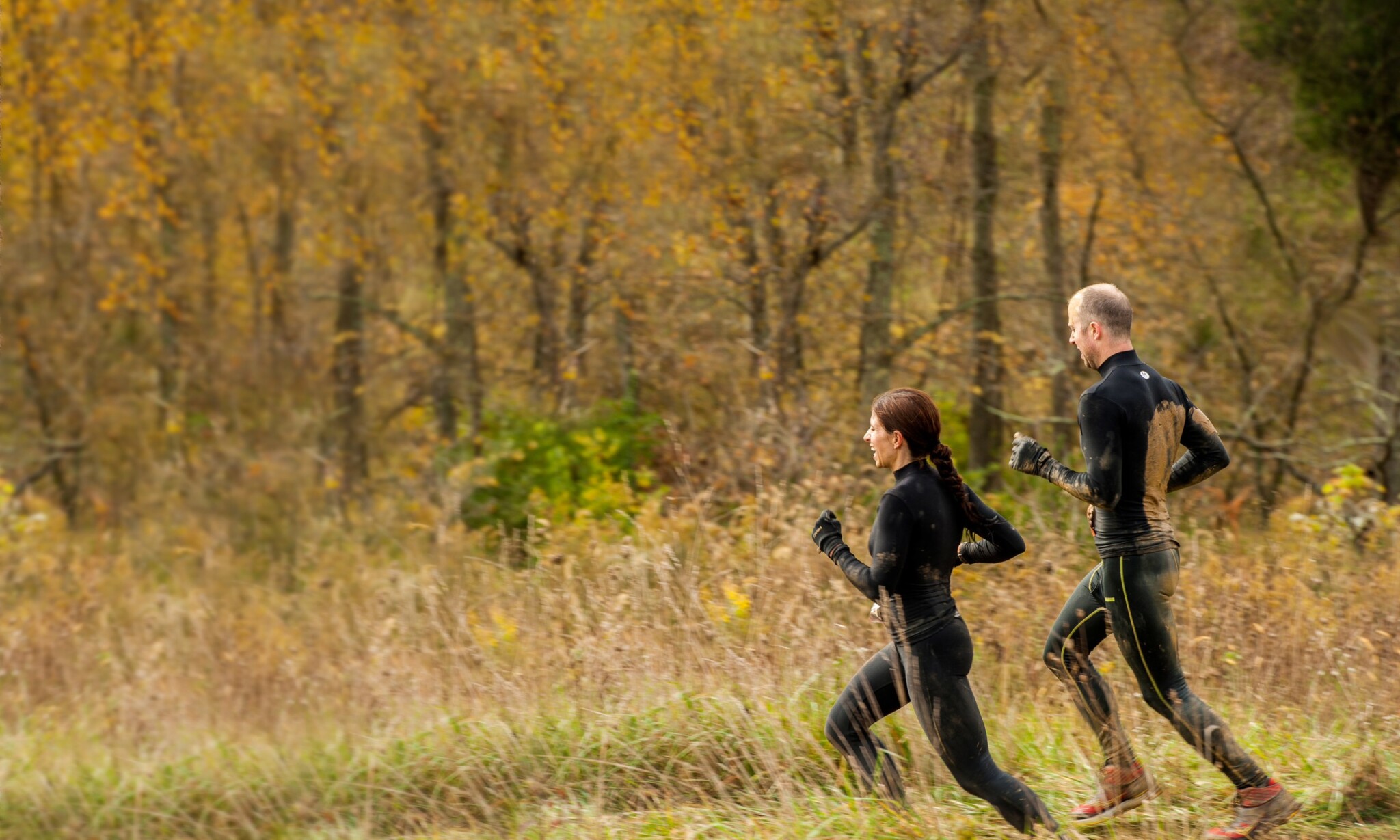Ready to run an ultramarathon? Intrigued, but terrified? Ultra running might sound intimidating, but with a little preparation and the right mindset, it’s completely doable, and dare we say it can even be fun! We chatted with a long time ultra running coach to bust some myths and get you excited.

To help break it all down, we spoke with ultra running coach and veteran trail runner Randi Orm on the Tread Lightly Podcast which you’ll find below. Since ultra running is becoming more and more popular, we wanted to provide some high-level notes for those interested but may not have 30 minutes to listen to the full episode.
Coach Randi Orm shared her journey, her love of the sport, and some incredible insights for anyone looking to try their first ultra marathon. Checkout the complete podcast below for all the insights.
What is Ultra Running?
Simply put, an ultra marathon is any race longer than 26.2 miles. The most common distances are 50K, 50 miles, 100K, and 100 miles.
But no two ultras are the same. Some races are flat and fast, while others are steep and technical, with mountain climbs or desert heat to contend with.
For many runners, the variety and the challenge are what makes ultra running so exciting. Each race is a chance to take on a new challenge, whether that’s a different terrain, weather, or distance. It’s about pushing your boundaries and enjoying the journey.
Which helps a lot of folks let go of worrying about pace and instead enjoy the running!!!
Coach Randi says it perfectly in the podcast: “If people would just experience one ultra marathon, they’d see it’s the most embracing, inclusive community. It doesn’t matter your pace or experience—everyone is there for the journey, and everyone belongs.”

How Do You Know If You’re Ready For an Ultra?
The idea of running your first ultra can feel a little overwhelming, but chances are, you’re more ready than you think. You don’t need to be an elite runner or have extensive trail experience to get started.
Sure, some trail experience is helpful, but there’s no need to be an expert or have completed a trail marathon. Shorter trail runs or races, like a 5K or 10K, are great opportunities to get familiar with uneven terrain and build confidence.
Ultra running isn’t about speed, it’s about challenging yourself, and enjoying the trails all while adapting to the environment.. plus throw in often doing this all on tired legs!
If you’ve run a road marathon or built a consistent base of 25–30 miles a week, you’re in a great position to train for a 50K. And if you’re still working on your mileage? That’s okay too.
Ultra running is all about the journey, so take your time, build your endurance, and get comfortable with the idea of exploring the trails.
Take a peak at our free Beginner 50K Training Plan to see what we mean >>
Does Ultra Training Require Running Daily?
Let’s clear up one of the biggest misconceptions: you don’t need to train all day to run an ultra.
A lot of people assume that ultra runners are out running 40+ hours a week, but that’s just not true. If you’ve trained for a marathon, you’re already halfway there. It’s all about making smart adjustments, not overhauling your life.
Another common myth is that you need to be an expert trail runner. While trail experience helps, it’s not a requirement. If you enjoy endurance running and have spent time outdoors, you’re already building the skills you need.
Listen to the full episode here to understand more about ultra running and training for your first race.
How Ultra Training is Different
Training for an ultra isn’t just about adding more miles, it’s about adapting your body and mind to handle the unique demands of the distance and races. The biggest shift comes in how you structure your schedule and how you train for the challenges of trail running.
Back-to-Back Long Runs:
Unlike marathon training, where one long run is the highlight, ultra training often includes back-to-back long runs to teach your body to run on tired legs.
For example, during peak training, you might run 20 miles on Saturday and then head out for another 15 miles on Sunday. Of course, this progression happens gradually. Early in training, it might start with an 8-mile run on Friday and a 12-mile run on Saturday.
Trail Time and Hills:
If your ultra involves trails (and most do), you’ll spend a lot more time training on them. Unlike road running, ultras often feature significant elevation changes, so hill work becomes a priority.
Learning to climb efficiently and descend with control takes practice, and your training will reflect that. Even if your race is flat, time on trails builds the strength and agility needed to navigate uneven terrain.
Ultra training is about more than just your legs. It’s a test of your mental strength and a chance to fine-tune other aspects of performance, like fueling strategies.
You’ll also train your gut to handle hours of eating on the run, adjust to the rhythm of long-distance pacing, and develop the mental grit to keep going when the miles get tough.
What Gear Do You Need for a Ultramarathon?
If you’ve been around for a while, you know how much we love gear. And in the ultra-running world, you need a little more than you would for a road race.
The right gear can make your ultra experience so much better. Here’s where to start:
- A running pack: This is a must for ultras. Look for one with enough room for water (usually 1–2 liters), nutrition, layers, and small essentials like a first-aid kit or blister care items.
- Trail shoes: Choose shoes with good trail running shoes with grip and durability for uneven terrain. Comfort is key since you’ll be spending hours on your feet.
- A quality running headlamp: If your race involves nighttime running, invest in a bright, reliable headlamp, and always bring backups. A dying light in the middle of a trail can quickly derail your race.
- Trekking poles (race dependent): These can help on hilly or mountainous courses, reducing strain on your legs during climbs. However, they require practice, don’t show up on race day with poles you’ve never used!
For races that allow them, drop bags are a game-changer. These are small bags you prepare in advance with items like extra nutrition, a fresh shirt, socks, or emergency supplies. They’re placed at designated aid stations along the course. Think of them as your personal pit stops, stocked with whatever you need to refuel, reset, and keep moving.
Don’t show up to your race with brand new gear that you’ve never tried before. Practice using your pack, headlamp, and even packing your drop bags ahead of time so you know exactly what works for you.
Do You Need a Crew or Pacers for an Ultra?
For most first-time ultras, especially 50Ks, you won’t need a crew or pacers. However, as distances increase (like 50 miles or 100 miles), having a crew and pacers can be a huge help. But what’s the difference between the two?
A crew is your personal support team, meeting you at designated points along the course to provide fresh gear, nutrition, and moral support. They’re there to keep you focused, problem-solve if issues arise, and give you a boost when you’re struggling. For longer distances, a good crew can make all the difference.
Pacers are typically allowed in races longer than 50 miles.
Their role is to run alongside you, keeping your spirits up, helping you stay on pace, and ensuring you stay safe (and awake!), especially during nighttime sections. Pacers are your motivators, cheerleaders, and trail buddies rolled into one.

For shorter ultras like a 50K, you’ll primarily rely on aid stations and drop bags to get you through.
Starting without a crew can actually be a good thing because it forces you to learn how to problem-solve on your own, which is an essential skill for ultra running.
As you move to longer distances, that knowledge becomes invaluable.
Overcoming Fears in Ultra Running
Fear is a natural part of stepping into ultra running, but it shouldn’t hold you back. Whether it’s the distance, running on trails, or spending hours in the dark, these challenges are all manageable with preparation and the right mindset.
Start by practicing on trails you’re familiar with, and don’t stress about pace just focus on getting comfortable with the unfamiliar environment. If your race involves nighttime running, do a few shorter night runs with a friend, using a reliable headlamp to build confidence.

Worried about getting lost? Review the course map, trust the markings, and use your GPS watch if needed.
Nervous about being alone? Remember, you’re rarely far from other runners, and aid stations are spaced along the course to support you.
Finally, embrace the unknown. Ultra running is as much about mental strength as physical ability. With every training run and race, you’ll prove to yourself that you’re capable of more than you ever imagined.
Fear is part of the process, but overcoming it is what makes ultras so rewarding.
If there’s one thing that sets ultra running apart, it’s the community. It’s a space where all levels whether you’re a seasoned trail runner or a first-timer are welcomed with open arms. Yes, the idea of an ultra can feel intimidating, but stepping onto the course is stepping into a collective of runners who support and celebrate each other every step of the way.
If you’ve been on the fence about signing up to run an ultramarathon, we hope that this is the sign you needed!
If you’re looking for a place to start, check out our free Printable Beginner 50K Plan!
Looking for more trail and ultra running tips?


